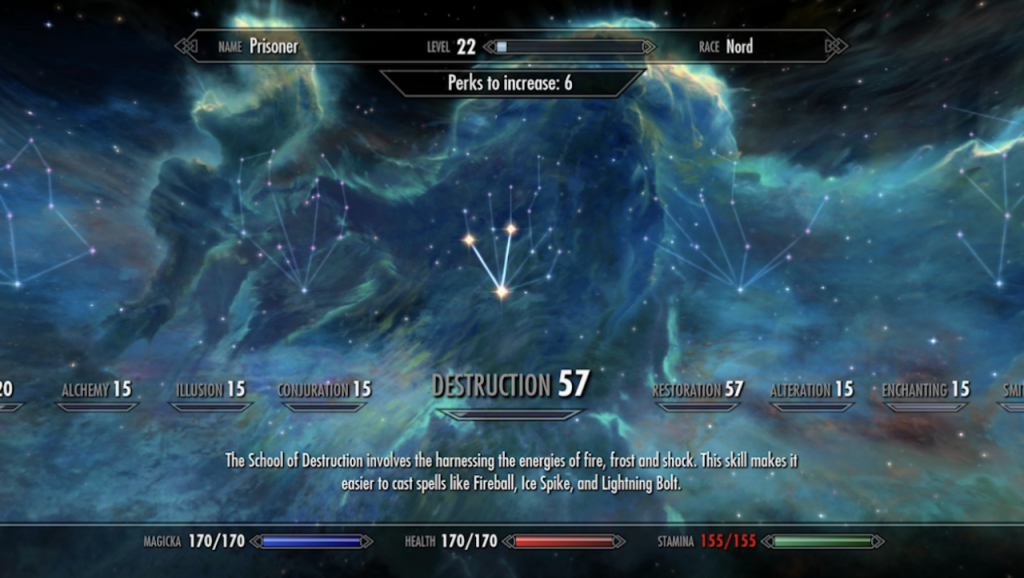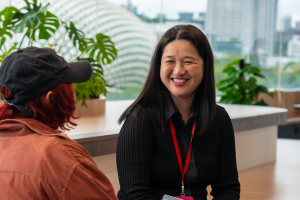One of the most stressful periods in your early-to-mid twenties will be the post-graduation job search.
One day, you are tunneling like a mole towards the deans’ list. The next day, you emerge blinking and confused into a wider world where you have to fend for yourself. It’s a scary experience.
At this point, you are supposed to ‘start your career’, but you haven’t the slightest clue how. Whilst struggling to fill up your CV, your project mate announces she has joined Google. Another has been accepted into Changi Airport Group’s management programme, and another has enlisted at KPMG.
Before long, everyone from your gainfully-employed girlfriend to the 60-year-old taxi unker is asking: “Eh, working already anot?”. Before long, the question begins to sound like an accusation.
It can be anxiety-inducing. Doubly so because complaining is somehow taboo for this circumstance (and this circumstance only). Voice your frustrations and just about every qualified ‘adult’ in the room will label you a fragile Millennial. They will then offer advice along the lines of ‘just send out more resumes’—as if you don’t spend every waking hour opening new tabs and closing them after reading ‘Min experience 5-8 years.’
Ignore them unless they’re actually employed in an industry you’re keen on. More importantly, however, BREATHE. Surviving this initiation into adult life is really about learning how to keep your wits about you.

Much of the anxiety one feels after graduation is not the genuine existential sort. It’s anxiety induced by social expectations. The normal Singaporean is a gainfully-employed, economically-productive Singaporean, with a 9-to-5 job and dreams of BTO. Work is an unquestionable, cardinal virtue, and the unemployed person is seen as somehow ‘deficient’.
This is why rejection often hurts. When employers say ‘you’re not a good fit for this job’, we are conditioned to hear ‘you are not a good person’. We assume there’s something terribly, fundamentally wrong with ourselves.
Don’t take this nonsense too seriously. Employment has no moral dimension. Doing work doesn’t make you a better person, and not doing work doesn’t make you abnormal. After all, Aung San Suu Kyi was technically unemployed whilst Pablo Escobar provided ‘employment’ for thousands. Free yourself from this stigma/philosophy and the process will become less painful.

People love to gossip. They will speak enviously of those who managed to secure a job immediately after graduation, and mock those who’re still unemployed despite doing many internships. They will compare pay and working conditions, and who’s working for the more prestigious brand.
Ignore them. There’s nothing more tedious than a man who spends his entire life talking resentfully about the money other men are making. When they begin speaking of Jun Jie who’s making $8,000 at Credit Suisse, just get up, shake their hand and delete them from your life. Fourth-hand fishwives gossip rarely helps the job search.
This is also good practice because whatever industry/company you join, there is sure to be more endless meetings. The art of listening without committing is a useful skill to cultivate.
3. Network Shamelessly
If you’re interested in a job or industry, it’s always wise to find out as much as you can rather than charge in like a blind Kamikaze pilot. Take time to research the job scope, understand the different roles, and how you might *potentially* fit in.
Unfortunately, this information isn’t available in a textbook, so you must ‘network’ to learn more. It can be a pain, especially if you’re an introvert, but there’s no other way. Sometimes, networking is still the best way because a) sometimes the job is not even posted publicly b) the company is stingy with their information or c) employees can give you the inside scoop on what the boss really needs. LinkedIn is a good place to start, but you should try everywhere from seniors at school to NS platoon-mates and friends of your uncle’s cousin thrice-removed. Not everyone will reply because everyone got shit to do, but you’d be surprised at the number of strangers who are happy to talk.
If you’re really too shy, check out Workforce Singapore’s professionally trained career ambassadors, who are experienced industry veterans standing by to help. They can’t give you a job, but they can point you in the right direction and provide insights into specific industries and sectors that might interest you.

A good way to gain some experience is to volunteer for an NGO or Voluntary Welfare Organisations. Many NGOs are perpetually short-staffed and since there’s no financial obligation, they just might take you on.
Granted, a lot of the work you do might be of the coffee-running, paper-shredding, variety, but it could lead to something more substantial. Good managers will not waste talent or ability any more than politicians will waste a photo-opportunity. You might gain some valuable first-hand experience when the overworked manager gives you responsibility for a project that you might never get to manage in a normal 9-to-5.
5. Go to Sleep
When you’re not working or studying, it’s easy to lose track of time. Entire days disappear down a rabbit hole of emails, rejections, forms, and anxiously waiting for delayed phone calls. Before you know it, it’s 1 AM, your eyes are bloodshot from screen-staring, and you’re still no closer to a job.
This is unhealthy because job searching should be a means to an end, not an obsession. The pressure to find something is real, but it shouldn’t up-end your life in the process.
Develop a schedule. Go for a swim. Play some video games at the end of the day. Read the news. If you spend every day staring at your laptop from 9 AM to 2 AM, you might be in a poor state to take on that interview.
Interviewers want to hire sane people who might be a pleasure to work with. Hence, interviews often begin with small talk about current affairs or how your life is going. Your answers might fall short on the sanity front if all your entire life is nothing but applications, angst and self-loathing. You might come across as a weird person and that’s bad.
So stop at 7pm and go pursue your normal leisure activities. That extra 2 hours of feverish searching might hurt rather than help.
Alternatively, it’s always possible to save time by filtering out what it is that you want and don’t want when it comes to your first job. Workforce Singapore makes this easy for graduates by shortlisting job vacancies on their MyCareersFuture.sg page.

One of the most popular delusions suffered by graduates is that school somehow prepares you for work. This is rarely true. Employment is like a Kinder Surprise. You never know what you are going to get, and when you do, there’s probably some assembly required.
In my first job, I applied to a supermarket and ended up learning basic Structured Query Language. Who knew? Although I left with ‘only’ 6 months’ worth of work experience, I learned a valuable skill that would take me much further than I thought.
Hence, it’s always wise—or prudent—to learn new skills as you go along. It’s not just impressive to list on your resume. It also puts you in good stead when you are actually employed, even if the skill is a seemingly banal one. You’re much likelier to survive the probation period if you’re the only guy who can make a high-quality gif or a chatbot, or is a master at the arcane aspects of Microsoft Excel. People will seek you out and you’ll make useful connections for later in your career.
The greatest free resource for learning new shit is undoubtedly Youtube, but if you want something more substantial, there’s Workforce Singapore’s Career Toolkit that’s full of handy tips and useful information on how to land a job and grow your career.
Pick something that looks interesting and go learn something new. You never know what might come in useful.

With the internet, it’s tempting to just sit at home and send out copy-pasted resumes until something hits. I would argue that this is perfectly alright, if a little limiting. A lot of the time, companies will hire people they’ve previously worked with, or have at least met or talked to. Hence, interns transform into employees, and one of the most common mid-career jumps is from vendor to client, or vice versa.
For the newly-graduated, this is a little harder because you have zero connections within the industry. However, you can improve your chances by visiting events, fairs, and other workshops where you’ll get a chance to meet people who are actually employed. Once you’ve shaken their hand and asked a few pertinent questions, it’ll be much harder for them to forget you. Even if it doesn’t lead to a job, it’s good practice. If you’re working in advertising, you don’t want your first conversation with an account director to be at the interview itself.
For a varied list of career events and workshops, check out Workforce Singapore’s events page. There’s roadshows and workshops covering everything from Design Thinking to Aviation.
8. Finally, Take Comfort in History
After 4 months without any success, it might seem as if the world’s about to end and you’ll never find a job.
Calm down. It’s not. I guarantee that in about five years, you’ll be laughing while crying bittersweet tears because it’s your fifth consecutive night of OT, your manager is getting all the credit. You will spend a lot of time complaining about your job to colleagues, friends and anyone who would listen.
The reality is, finding your first job is probably the hardest. Singapore is a small place. If you’re a decent employee with reasonable social skills, you’ll make connections in your chosen industry pretty rapidly in your first two or three years. You will meet rivals who want to poach you and catch up with colleagues who’ve left for other companies who just *might* be hiring. You will also gain an understanding of who needs your expertise and where you can help.
Over time, your quest to find Literally Any Job will transform into a search for the right job for yourself.
So take heart and don’t worry about the job search. Within a few years, the whole thing will seem as ridiculous and as irrelevant as worrying about the social studies test you flunked back in Sec 3.
Still feeling a little lost? If you’re a fresh graduate in need of some help to kickstart your career, check out WSG’s MyCareersFuture.sg, where job vacancies are already pre-filtered and shortlisted to suit your employment criteria.
Happy hunting.





